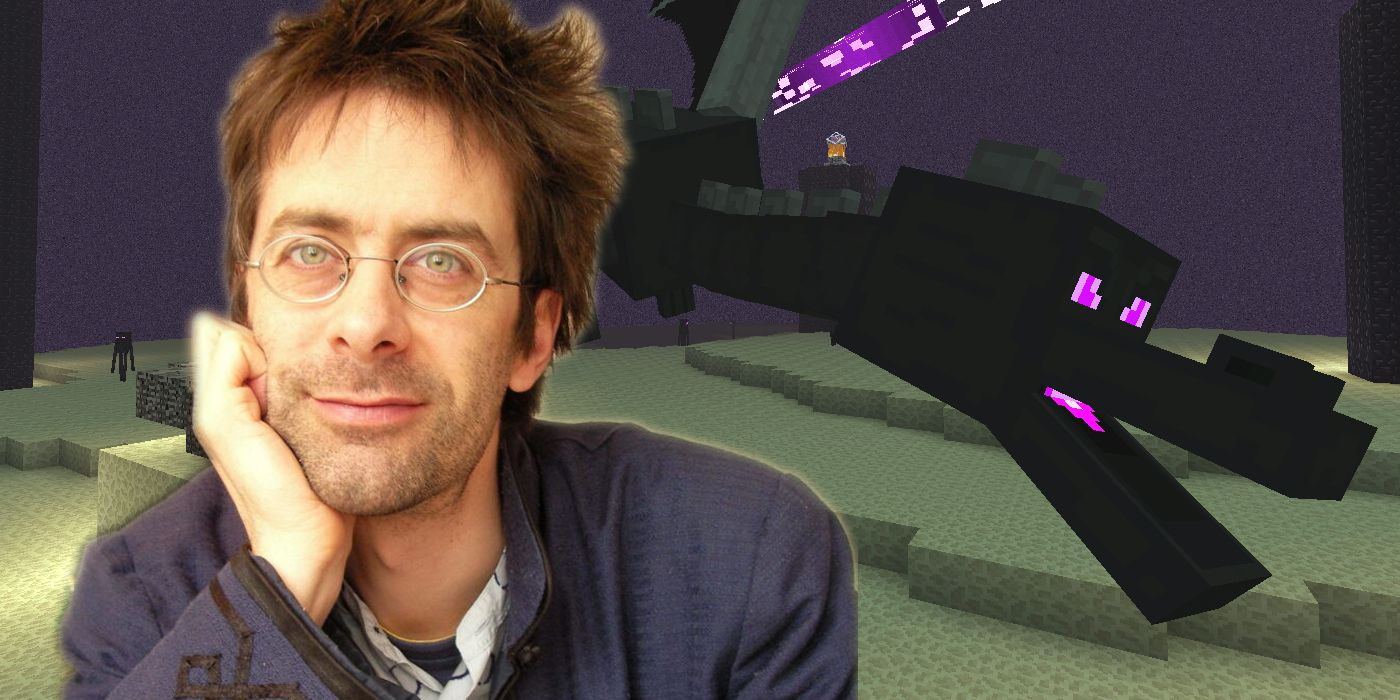The iconic poem presented to players at the end of the ever-popular sandbox survival game Minecraft is not owned by Microsoft -- nor was it ever owned by the game's formerly independent publisher, Mojang Studios, its writer has revealed.This revelation comes in the form of an article, written by the poem's author, Julian Gough, on his Substack page The Egg and The Rock. In his post, the writer reveals he never signed the "horrible" contract that would have handed the rights to the poem first to Mojang and then later to Microsoft when they acquired the company in 2014. Gough also followed up with a series of summary tweets.
Julian Gough's History With Minecraft
Gough's article details the history of his involvement with Mojang and his friendship with Markus Persson -- also known as Notch, the co-founder of Mojang and the creator of massively popular Minecraft, which is the biggest-selling video game of all time. Describing his initial collaboration with Persson in extremely positive terms, Gough wrote, "Markus got back to me immediately, and said he loved it. He told me that I had articulated his philosophy of life better than he could ever have articulated it himself... So all of that was wonderful. One of the most satisfying artistic experiences of my writing life."
However, Gough went on to explain his issues with his ambiguously agreed upon fee and the contract he was presented with, which would have seen the author legally waive "so-called moral rights" and grant the game's owners all intellectual property rights, among other points of contention.
"I wrote a story for a friend," Gough said. "But in the end, he didn’t treat me like a friend. And I’m hurt. That’s the core of what I want to say." He clarified he holds no ill will towards Persson, Mojang, or Microsoft. After a psychedelic experience in the Netherlands, Gough reached the decision to "liberate" the end poem, which he does in writing towards the end of the post. "From today on, you can play with it, whether privately or in public, and nobody can stop you. Well, technically and legally I could, because I hold the copyright, but I renounce my right to do so. The universe wrote that ending, and the universe owns it. Which is to say both that nobody owns it, and we all own it. Which is to say, it lives outside of that way of looking at art."
Though it's a sandbox game with a fictional world and most of Minecraft's lore is left up to the imagination, Gough's freehand poem memorably appears in the game when the player defeats the ender dragon and leaves the End. Its form is that of a dialogue between two "speakers" exchanging memories of the player's feats in the Minecraft world and has become a resonant symbol of the game for many fans. Now that the poem is officially in the public domain, Gough encouraged creative Minecraft fans to do what they do best: "you are free to set it to music; dramatise it; animate it. Mash it up with whatever you think it would go well with. Whatever you’re inspired to do. (Ideally inspired by love, but that’s on you.)"
Minecraft is available on PC, Nintendo Switch, PS4, Xbox One, Android and iOS.
Sources: The Egg and The Rock, Twitter

